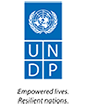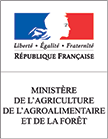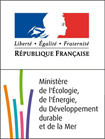Turning initiatives into stories: Pecha Kucha-style Night
For the first time, the Global Landscapes Forum hosted a Pecha Kucha-style Night on the evening of the 5th of December, giving individuals and organizations the chance to present about landscapes in a dynamic and concise way.
What is a Pecha Kucha-style presentation?
It is a simple presentation format where 20 images are shown for 20 seconds each, which advance automatically as you talk. Each presentation has an exact duration of 6:40 minutes.
Seven speakers have been selected for their inspiring ideas and initiatives, ranging from research and innovative projects to eye-opening life experiences and music — all related to landscapes and their pressing challenges.
1. Xiuhtezcatl Martinez

We are all Indigenous to the Earth
Xiuhtezcatl– deeply rooted in the Aztec tradition– shares his indigenous wisdom and the importance of staying connected to our cultures. He shows how indigenous cultures around the world are being impacted through their loss of land, languages and ancient teachings that could be important guides for turning the tides in the global challenges we now face.
2. Andrea Vasquez

Who defines development? Consequences of non place- and cultural-based definitions
In her presentation, Andrea aims to answer the question “Who defines development?” by drawing on examples from the Amazon that unpack the assumptions underlying various definitions of development.
3. Sayed Azam-Ali

How to feed a hotter world
In December 2015, world leaders meet in Paris with a goal to limit CO2 emissions to keep global temperatures within 2°C above pre-industrial levels. Even if they succeed in this goal, a warming planet will challenge food production at a time when burgeoning population requires unprecedented amounts of food, water and energy. By 2030, we will need 50% more food and energy and 30% more fresh water. How will we feed in a hotter world?
4. Houria Djoudi

Once, there was a lake
Any change that happens in natural landscapes also affects and transforms social and cultural norms, and power and gender relations. This message is illustrated in the form of a story about Houria’s findings while working in Northern Mali; where the daily livelihoods of a community drastically changed to adapt to a new landscape.
5. Michael Taylor

A common vision: the 10-65 challenge
This presentation consider the urgency of closing the gap between the 65% of land claimed by local communities and Indigenous Peoples, and the 10% that governments actually recognize as belonging to local communities. It considers the lose-lose scenarios that can easily arise when such rights are ignored, and the win-win possibilities for local communities when their land rights are recognised.
6. Tristan Lecomte

Insetting via Agroforestry at landscape level
Offsetting the socio-environmental footprint of an organization via Agroforestry within its own supply chain could benefit 500 million people and generate 5 billion additional Euros yearly by 2025. The question is: how to scale up?
Prior to PUR Projet, Tristan founded Alter Eco in November 1998 and managed it for 13 years (sold back to the leading organic European company Wessanen). Alter Eco is now the leading organic and fair trade company on the French market, present in the US and Australia. At Alter Eco, Tristan developed most of the supply chains in partnership with 40 farmers groups in 35 countries: cocoa, coffee, rice, sugar, fruit juices organic and fair trade supply chains.
He is the author of six books on Fair Trade and Sustainability published in France: « Le pari du Commerce Equitable » (2003), « Le Commerce Equitable » (2004), « Oui ! Au Commerce Equitable », (2007), « Le Commerce sera Equitable » (2007), « Comment je suis devenu plus humain » (2011), « Et si on remontait dans l'arbre ? » (2015), and the author and producer of a series of documentaries for the French TV Channel France 5, on supply chains sustainability issues (cocoa in Peru, sugar in the Philippines, rice in Thailand,..).
Tristan was appointed as "Young Global Leader" by the World Economic Forum in 2008 and Ashoka Fellow in 2009, and nominated as one of the Time Magazine 100 "Most influential people in the World" in 2010. In 2013, he was nominated Social Entrepreneur of the Year 2013 by the Schwab Foundation.
Tristan graduated from HEC Paris in 1996.
- PUR Projet 's website : http://www.purprojet.com/en/
- Facebook : https://www.facebook.com/PUR-Projet-203150846365509/?ref=hl
- Twitter : https://twitter.com/PurProjet
7. Nienke Stam

Production and protection; Business initiative for sustainable landscapes
This presentation introduces production-protection compacts, agreements to investments to achieve both forest conservation and development goals, and addresses governance challenges in the balance between agriculture, forest and people through a multi-stakeholder approach. This will be explained through an example of the IDH Initiative for Sustainable Landscapes in Kenya.
Prior to this, she was Technical Team Lead in consultancy firm Triodos Facet / Enclude. In this role, she mobilized private sector investment and partnerships to accelerate innovations in agricultural and clean energy supply chains. Before that, she worked in the private sector as marketing manager for various companies targeting markets in Africa, Asia and Latin America, and as an entrepreneur imported sundried organic fruits from Africa. Mrs. Stam holds a Master’s degree from Wageningen University graduate, with a specialization in rural supply chain development.
8. Nolan Hunter

Traditional Fire Management: Indigenous People Leading Climate Mitigation
Indigenous people in north-western Australia use traditional fire burning practices to mitigate the effects of climate change and create sustainable livelihoods in the country. Nolan Hunter, CEO of the Kimberley Land Council, explains how.
Mr Hunter is a Bardi man with strong links to his people and culture across saltwater country in northern Western Australia. In keeping with Aboriginal traditions, Mr Hunter has been taught by his senior elders the stories of, and knowledge about his people, language, law and culture. His expertise in traditional knowledge has been further advanced in his role as CEO of the KLC, which represents and brings together about 25 different Aboriginal tribal groups from across the region.
Mr. Hunter has a professional background in strategic management and staffing operations and has more than 23 years of experience in this field. He spent 14 years with different Commonwealth agencies specialising in Indigenous Affairs and has worked extensively with Indigenous communities in Australia. Mr. Hunter has worked with the Australian Consulate in Manchester, focusing on immigration and humanitarian programs as well as the Australian Embassy in Vienna, Moscow, Edinburgh and Dublin. On returning to Australia, he has worked as the Director of several indigenous organisations.
Through his role with the Kimberley Land Council, Mr. Hunter is an active campaigner for Indigenous native title rights. He strongly supports the development of sustainable business enterprises based on Aboriginal cultural values as a way to generate wealth in remote communities, ignite social change and create positive futures for Kimberley Traditional Owners. He has recently presented at a number of International conferences on the development of environmental and cultural enterprises and the KLC’s work to connect indigenous land managers from across the world. He has presented at both the Thirteenth and Fourteenth United Nations Permanent Forum on Indigenous Issues, the World Parks Congress, the Wild10! Conference and the World Indigenous Network Conference.




































